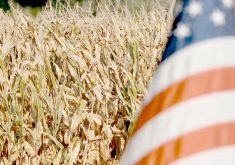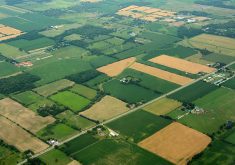DES MOINES, Iowa, (Reuters) – Big agricultural processors and shippers will need to pay more attention to green issues in years ahead if they want to be successful, said a top official of global agribusiness giant Bunge.
“Agriculture has a big challenge over the next 50 years: doubling production while reducing our environmental footprint,” said Carl Hausmann, president and chief executive of Bunge North America.
“We have doubled production before but in ways that use more water, more land, more fertilizer, and (it) hasn’t always been as soft on the environment as we will need to be in the future,” he said. “Doubling again while using less water, less land, less crop inputs, might be an issue.”
Read Also

U.S. government investigates high input costs
The USDA and DOJ are investigating high input costs, but nothing is happening in Canada.
Hausmann, speaking on the sidelines of the World Food Prize meeting that drew agricultural executives and officials from around the world, said Bunge’s role as a supplier to and customer of farmers remained its day-to-day keystone.
“Our role is to make sure that we understand what are the stresses and strains on the farmer and what is the value chain not only in a specific country but what is the global value chain looking for us to do,” he said. “We are very much a logistics company.”
Everyday concerns
He said societal issues ranging from the environment to hunger to food quality were already tied into Bunge’s everyday practical business concerns.
“Number one: what are the food safety, food security needs of our different global customers?” Hausmann said. “What are the logistic needs to make sure that we can meet this requirement? What are the implications of global trade that we think we need to understand in order to really fulfill our role in a way that meets society’s requirements from our sector?”
Experts at the Food Prize forum discussed a multitude of issues tied to increasing world agricultural production at a time when world hunger is rising, not falling, according to recent reports from the United Nations.
“We need to make sure that the policies that governments have, the opinions that civil society is developing, are both understood and are challenged where we think they are wrong but incorporated into our own way of working in the future,” he said. “We can produce a lot more quantity of grain in the heartland of Brazil. But how do you get it to market?”
Bunge is a leading grain exporter in Brazil and Argentina as well as the top fertilizer producer in South America.
Hausmann said the world agricultural system will need to step up co-ordination to meet society’s goals.
“Naturally we think we know our little niche very well. But we don’t know what the governments are thinking, we don’t know what the research institutions of the world are doing,” he said. “It is critical for us to understand what the other players in the value chain are doing … both for our shareholders as well as for the entire society.”














